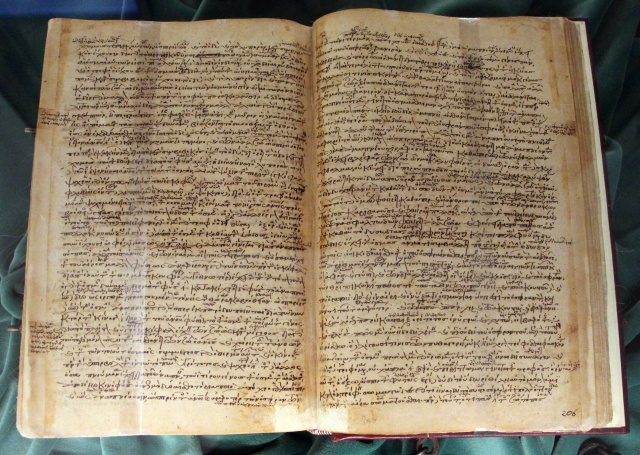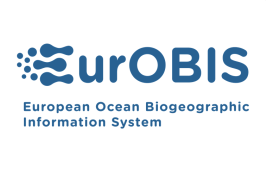The great philosopher Aristotle was born in 384 BC. Up to the age of sixteen he lived in Stagira, a small town in Macedonia, Northern Greece. He joined Plato’s Academy in Athens where he stayed and was instructed by Plato himself for the next twenty years. After Plato’s death he left Athens, got married and spent five years in Asia Minor and on Lesbos Island. In 342 BC he returned to his homeland, invited by Philip of Macedon, to become a tutor of his 13 year old son Alexander (later “the Great”). He returned to Athens again, and established his own philosophical school, the Lyceum, and for the next 13 years taught and wrote the greatest part of his treatise on philosophy and science. Increasingly, he immersed himself in empirical studies, combining theory with investigations, thereby shifting away from Platonism. After a long and fruitful life and career, he died in Chalcis, on the Island of Euboea, in 323 BC. Aristotle was a universal scientist with a wide interest. He laid the foundations of several scientific disciplines. While medicine, mathematics and astronomy had already been developed by the Pre-Socratic philosophers, Aristotle was the first to define the scientific method and a pioneer in the study of living organisms. Biology received his attention more than any other science (epistēmē) and his biological writings make up about 20% of his total extant works. He was the first to systematically observe and describe biological diversity. He also developed the first classification of animals. Charles Darwin admired his work and compared him to Carl Linnaeus, while the great evolutionary biologist of the 20th century Ernst Mayr, called him ‘the father of biological classification’. |

Besides his profound love for knowledge itself, his interest in marine biology can be linked to his close relationship with the sea. He was familiar with the great variety of fish and marine invertebrates harvested and exploited by the coastal Aegean communities, as demonstrated by archaeological records. Aristotle carried out most of his marine research during his stay on Lesbos Island, more specifically in Kalloni Bay, which is frequently mentioned in his zoological works. There, with the help of the local fishermen, he had the opportunity to study the existing marine biodiversity, access to material for his anatomical work and could observe, first hand, aspects of the biology & behaviour of marine animals. Aristotle’s knowledge of marine organisms is remarkable, particularly when we consider the complete lack of basic research equipment, such as microscopes or scuba gear.
Aristotle’s invaluable contribution to the knowledge of biology and biodiversity has recently attracted the interest of modern marine scientists. These scientists aim to understand the roots of marine biological study, knowledge which can provide baseline information for comparisons between Ancient and current condition. Their expertise can also provide input to other branches of science, including historians, archaeologists and philosophers.
 |  | |
A 12th century transcript of Aristotle's Historia animalium, found in Constantinople (currently Istanbul) and at present part of the collection of the Biblioteca Medicea Laurenziana in Florence, Italy. Photo: Sailko / Wiki Commons. | Illustration of a crab present in the ‘Kitab Na't al-hayawan’, a 13th century Arab translation of part of Aristotle’s writings on natural history. The original drawings, by Aristotle published in one additional volume Anatomai, are now lost. Photo: © The British Library Board (Or. 2784 f.87v). |
In recognition of Aristotle’s important contribution to philosophy and science, UNESCO declared 2016 (the year of his 2400th birth anniversary) as the “Aristotle Anniversary Year”. To celebrate his specific contributions to marine sciences, we will feature 4 more stories, linking Aristotle’s scientific contributions to taxonomy, ecology and species distributions to current-day initiatives such as the World Register of Marine Species (WoRMS), the European LifeWatch project (featuring the Belgian and Greek contributions), the European Marine Observation and Data Network (EMODnet) and the European node of the Ocean Biodiversity Information System (EurOBIS).
References:
- Ganias K., Mezarli C. and Voultsiadou E. (submitted). Aristotle as an ichthyologist. Aegean fish diversity 2400 years ago.
- Leroi, A.M. (2014). The Lagoon: How Aristotle Invented Science. Bloomsbury Publishing, London.
- Lloyd, G.E.R. (1970). Early Greek Science: Thales to Aristotle. The Norton Library, New York.
- Mylona, D. (2008). Fish-eating in Greece from the fifth century B.C. to the seventh century A.D. A story of impoverished fishermen or luxurious fish banquets? (BAR International Series 1754). Archaeopress, Oxford.
- Shields, C. (2012). Aristotle’s philosophical life and writings. In: The oxford handbook of Aristotle. (ed C. Shields). Oxford University Press, New York.
- Voultsiadou, E.; Vafidis, D. (2007). Marine invertebrate diversity in Aristotle’s zoology. Contributions to Zoology 76: 103-120.












